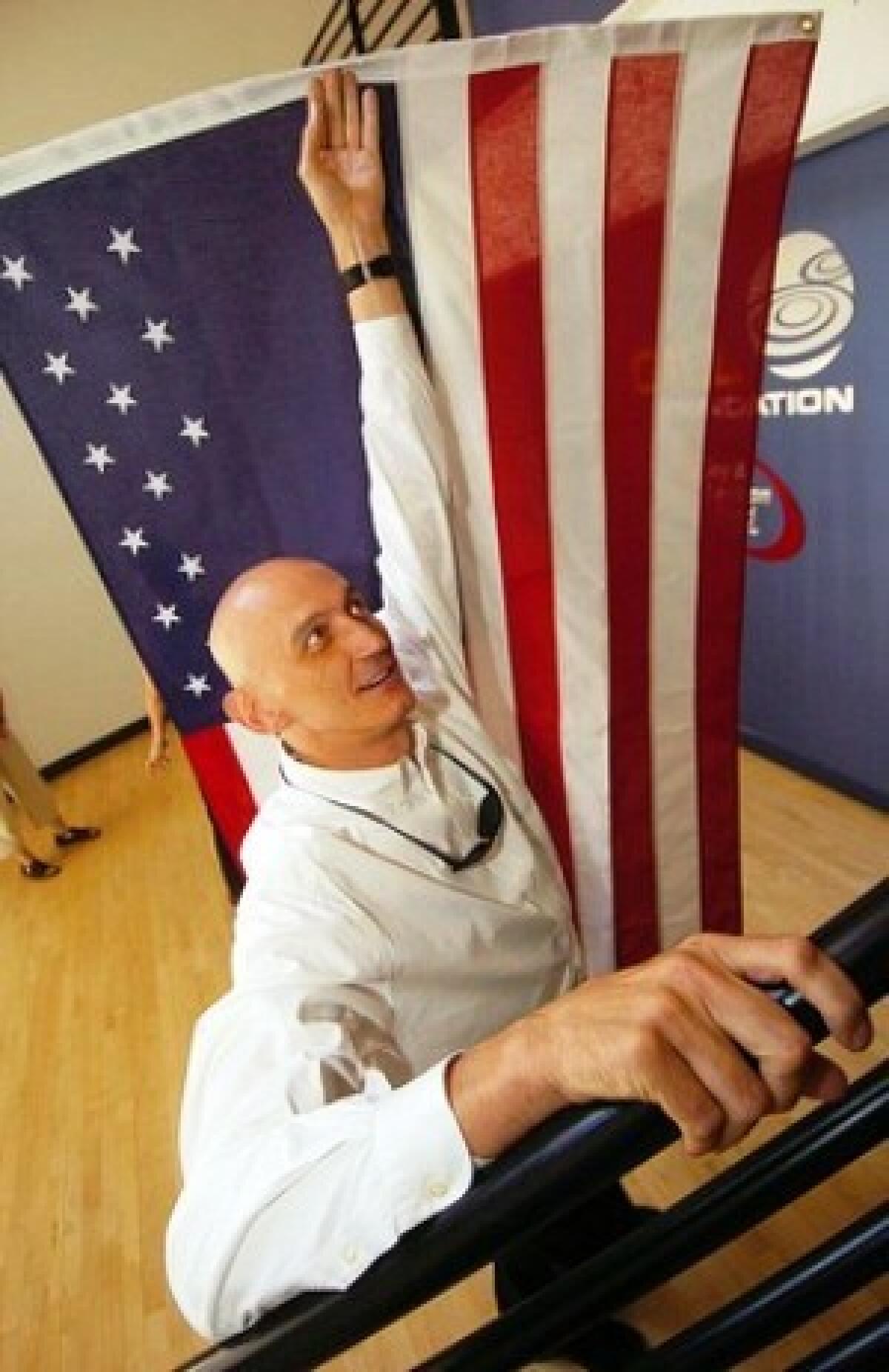Rodger McFarlane dies at 54; gay-rights activist established first AIDS hotline

Rodger McFarlane, a pioneering gay-rights activist who set up the first AIDS hotline in 1981, before the disease even had a name, and later ran influential AIDS service groups, has died. He was 54.
McFarlane, who was based in Denver, committed suicide May 15 in Truth or Consequences, N.M., his family and friends said in a statement.
FOR THE RECORD:
McFarlane obituary: The obituary of pioneering gay-rights activist Rodger McFarlane in the May 23 Section A said he had a twin brother, David. In fact, David, who died in 2002, was a younger brother. —
He left a letter explaining that he was unwilling to allow his heart and back problems to further debilitate him. In 2002, he broke his back in the Eco-Challenge wilderness adventure race, and he was facing heart-bypass surgery.
“He was one of those fantastically energetic, self-possessed visionary people who knew what had to be done,” said Mark Thompson, a Los Angeles author and gay historian.
“He was a profile in courage . . . a role model of activism, of doing something positive in a very negative time,” Thompson said.
Early in the AIDS epidemic, McFarlane “stumbled” into what became his life’s work, he told National Public Radio in 1998. “Our friends and our lovers . . . were not being cared for, and we had to learn how to get them what they needed.”
The first national AIDS hotline was little more than McFarlane’s home phone and an answering machine. By the summer of 1982, he was answering every call himself, an effort that helped give “birth to this extraordinary array of . . . AIDS service organizations,” McFarlane told NPR.
His hotline would become a linchpin of the Gay Men’s Health Crisis, the first organization to provide AIDS client services.
McFarlane was soon its director and stayed with the New York City group until 1985.
Larry Kramer, a playwright and gay-rights activist who co-founded the group, said McFarlane built it “from nothing to great prominence, like he did with each organization he worked with.”
“I believe he did more for the gay world than any single person has ever done before,” said Kramer, who was a close friend.
As executive director of Broadway Cares/Equity Fights AIDS from 1989 to 1994, McFarlane oversaw the merger of two theater-industry groups and their transformation into a prominent grant-making and fundraising organization. On Tuesday night, Broadway theaters dimmed their marquee lights in his honor.
He also served as president of New York City’s Bailey House, which provides housing for homeless people with AIDS.
From 2004 through 2008, McFarlane was executive director of the Denver-based Gill Foundation, which finances programs advocating for lesbian, gay, bisexual and transgender civil rights.
“He completely transformed the way we think,” said Fred Sainz, vice president of communication for Gill, and saw that the organization could have a greater effect focusing on the state rather than the federal level.
“The vast majority of rights that gay people have gained in the past few years have come from actions in state legislatures,” Sainz said. “That’s directly attributable in large part to Rodger McFarlane.”
A tough-talking Southerner who laced his sentences with profanity, the 6-foot-7 McFarlane was known as a brilliant strategist who was as tough as concrete. An accomplished athlete, he made seven over-ice expeditions to the North Pole and would jump into the Hudson River in December to train for a triathlon.
Yet he was also a caregiver who once recalled that he had nursed “countless people” with AIDS at the end of their lives. One of them was his twin brother, David, who was also gay; he died in 2002.
Rodger Allen McFarlane was born Feb. 25, 1955, in Mobile, Ala., to Robert and Betty McFarlane. Two brothers, John and Bob, survive him.
Raised on a soybean and chicken farm in Theodore, Ala., he attended the University of South Alabama. In 1974, he joined the Navy and spent four years as a nuclear-reactor technician on a submarine.
Before and after his Navy years, McFarlane was a respiratory therapy technician at an Alabama hospital, an experience he credited with helping him know his way around healthcare.
He co-wrote the hefty 1998 book “The Complete Bedside Companion: No-Nonsense Advice on Caring for the Seriously Ill.”
In 1998, he also competed in his first Eco-Challenge, in Morocco, and was recruited for the 2002 race in Fiji.
As an activist, McFarlane could delight in his inner prankster, as he did when recalling the early days of ACT UP, a protest group that he helped found.
“If you don’t grasp that democracy and good citizenship entail draping Jesse Helms’ house in a giant condom or chaining oneself to a pharmaceutical executive’s desk,” he once wrote, “you don’t know history.”







